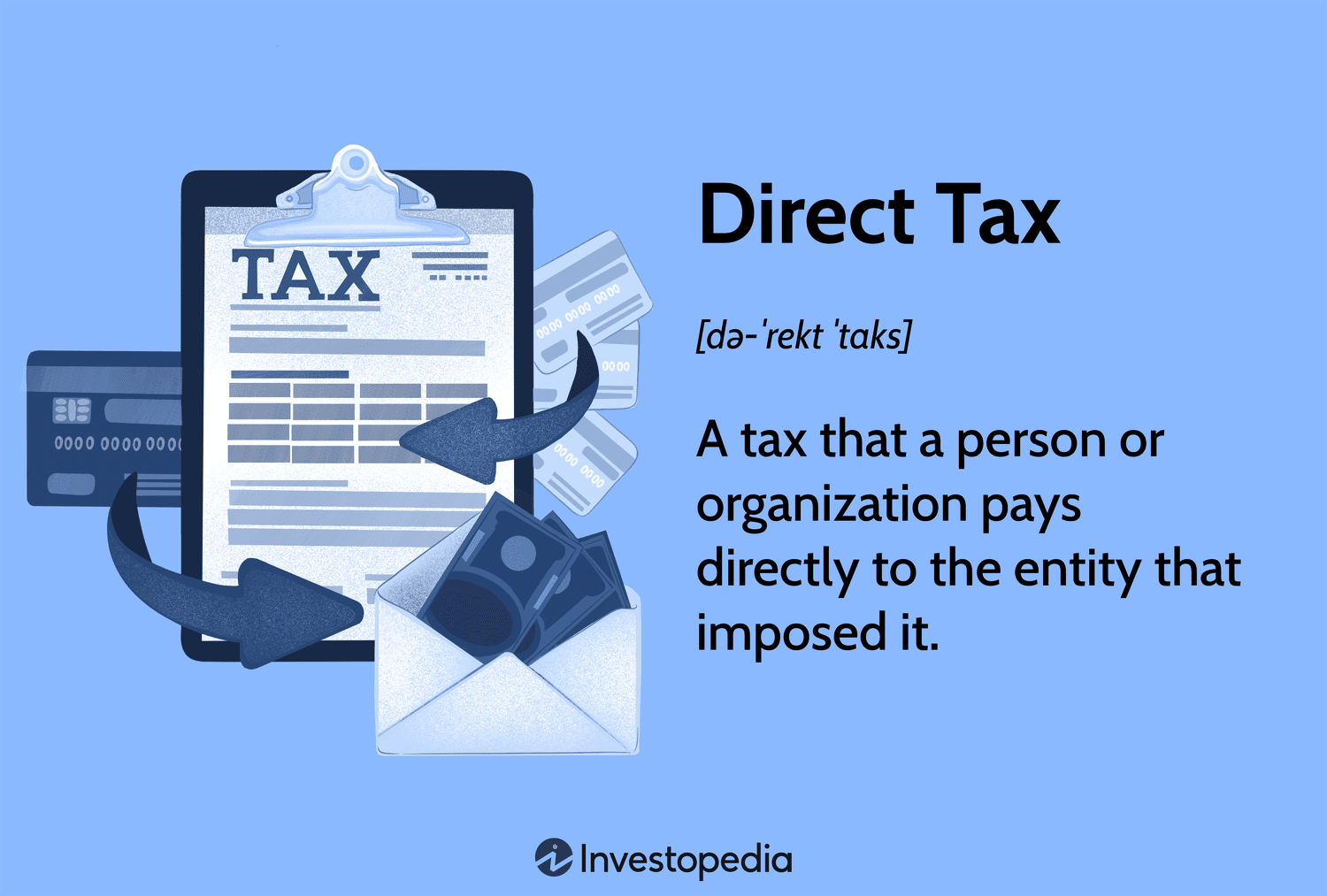Who Bears the Burden: Property Tax Responsibility on a Life Estate
The person with the life estate is responsible for paying property taxes on the property. A life estate is a legal arrangement where someone is granted the right to use and occupy a property for the duration of their life.
While they are in possession, they are responsible for paying property taxes as long as they hold the life estate. This means the person with the life estate will receive the property tax bills and must make the necessary payments to the appropriate authorities.
The ownership of the property, however, is retained by the owner of the life estate, and they have the right to use and enjoy the property during their lifetime. It is important for individuals considering a life estate arrangement to understand the financial obligations associated with it, including the responsibility to pay property taxes.
Life Estates Explained
A life estate is a legal arrangement that allows an individual, known as the life tenant, to have the right to use and occupy a property for the remainder of their life. While the life tenant holds these rights, they are responsible for paying certain expenses, including property taxes. Understanding the details of a life estate can be crucial for both the life tenant and the remainderman, who will ultimately inherit the property after the death of the life tenant.
Definition And Purpose
In simple terms, a life estate is a type of ownership interest in a property that grants someone the right to use and live on it for their entire life. This arrangement is commonly used when someone wants to transfer a property to another individual, but with some limitations. The purpose of creating a life estate is often related to estate planning and ensuring that the property passes to the intended person upon the death of the life tenant.
Rights And Responsibilities
When it comes to a life estate, both the life tenant and the remainderman have their own set of rights and responsibilities. Let’s take a closer look at what each party is entitled to:
Life Tenant Rights:
- The right to use and occupy the property for their lifetime
- The right to any income or profits generated by the property during their lifetime
- The right to make reasonable alterations or improvements to the property
Life Tenant Responsibilities:
- The responsibility to pay property taxes and other ongoing expenses
- The responsibility to maintain and repair the property
- The responsibility to obtain insurance coverage for the property
Remainderman Rights:
- The right to inherit the property upon the death of the life tenant
- The right to sell or transfer their remainder interest
Remainderman Responsibilities:
- No current responsibilities since they do not have ownership or possession rights until the death of the life tenant
It’s essential for both parties to clearly understand their rights and responsibilities, especially when it comes to property taxes. Usually, the life tenant is responsible for paying property taxes during their lifetime, as they hold possessory rights. However, it’s always recommended to consult with a legal professional to ensure all obligations are properly understood and addressed.

Credit: www.newyorker.com
Property Tax Basics
Property taxes play an essential role in funding local government services and public schools. In this section, we will explore the fundamentals of property tax, including what it entails and the various factors that influence tax rates.
What Is Property Tax?
Property tax is a recurring tax imposed on real estate properties, such as land, buildings, and homes. It is levied by local governments to generate revenue that supports community infrastructure, schools, emergency services, and other public amenities. Property taxes are typically calculated based on the assessed value of the property and are due annually or semi-annually.
Factors Influencing Property Tax Rates
Several factors contribute to the determination of property tax rates. These include:
- Assessed Value: The assessed value of a property, which is determined by a local assessing authority, plays a crucial role in calculating property tax. The assessed value is often based on market value but can be influenced by other factors, such as improvements or renovations made to the property.
- Local Tax Rates: Each local government sets its own tax rates based on budgetary requirements. These rates may differ significantly from one jurisdiction to another, which means property tax rates can vary widely depending on the location.
- Tax Exemptions and Deductions: Certain properties may qualify for exemptions or deductions that reduce the taxable value, resulting in lower property tax liability. These exemptions can be granted to specific groups of people, such as senior citizens or veterans, or for particular purposes, such as conservation or historic preservation.
- Special Assessments: In some cases, property owners may be subject to additional special assessments that fund specific services or infrastructure improvements within their local area. These assessments are typically based on the benefit received by the property owner and can contribute to the overall property tax bill.
Understanding the basics of property tax and the factors influencing tax rates can help property owners navigate their tax obligations and make informed financial decisions.
Tax Responsibility In Life Estates
In a life estate, the person who holds the life interest is typically responsible for paying the property taxes.
A life estate is a legal arrangement where an individual, known as the life tenant, retains the right to live in a property for the duration of their life. But what about property taxes? Who is responsible for paying them? Let’s examine the tax responsibilities in life estates.
Taxation During The Life Tenant’s Occupancy
During the life tenant’s occupancy, they are typically responsible for paying property taxes. As the person enjoying the use of the property, it makes sense for them to bear this financial obligation. The life tenant must ensure that property taxes are paid promptly to avoid any legal consequences or penalties.
In some cases, the life tenant may need assistance covering the cost of property taxes, especially if their financial circumstances change. This is where a clear agreement between the life tenant and the remainderman becomes essential. The remainderman may agree to contribute a portion or the entire amount of property taxes to alleviate the burden on the life tenant.
It’s important to note that property tax assessments are based on the property’s value, which can fluctuate over time. Therefore, the life tenant should stay informed of any changes in the property’s assessed value, as it may impact the amount they need to pay in property taxes.
Taxation After The Life Tenant’s Passing
After the life tenant passes away, the responsibility for paying property taxes typically shifts to the remainderman or the new owner of the property. The remainderman’s obligation to pay property taxes arises once they become the sole owner of the property upon the life tenant’s death.
The remainderman should take immediate action to update the property’s ownership information with the relevant tax authorities to ensure that future property tax bills are directed to them. This step is crucial to avoid any confusion or potential legal issues regarding tax payments.
To determine the amount of property taxes owed after the life tenant’s passing, the property will undergo a reassessment and new tax calculations will be made based on the current market value. It’s important for the remainderman to budget for these potential changes in property tax expenses, as they may differ from those paid during the life tenant’s occupancy.
In conclusion, understanding the tax responsibilities in life estates is crucial for both the life tenant and the remainderman. Open and clear communication, as well as proper financial planning, can help ensure that property taxes are paid correctly and on time, providing peace of mind for all parties involved.
:max_bytes(150000):strip_icc()/tax_incidence.asp-final-a0d98ae8768b4070b0f7282ea9fc6b1e.png)
Credit: www.investopedia.com
Challenges And Considerations
When it comes to property taxes on a life estate, there are several challenges and important considerations to keep in mind. Understanding the fair tax share and the financial obligations of the life tenant is crucial for a smooth transition and effective estate planning.
Determining Fair Tax Share
Determining the fair share of property taxes between the life tenant and the remainderman can be a complex task. Since both parties have a stake in the property, it is important to establish a fair and equitable division of tax responsibilities.
One approach to determine the fair tax share is to consider the value of the life estate relative to the total property value. The life tenant may be required to pay taxes in proportion to their interest in the property. For example, if the life tenant has a 50% interest in the property, they would be responsible for paying 50% of the property taxes.
In some cases, the life tenant may cover the full property tax amount and then request reimbursement from the remainderman for their share. This can simplify the payment process and ensure that the taxes are paid on time.
Life Tenant’s Financial Obligations
Besides property taxes, the life tenant also has other financial obligations to consider. These obligations may include repairs, maintenance costs, insurance premiums, and homeowners association fees. Therefore, it is important for both the life tenant and the remainderman to clearly define the financial responsibilities within the life estate agreement.
In addition, the life tenant should ensure they have a sufficient income or financial resources to cover these expenses. Failing to meet these financial obligations could potentially jeopardize the life estate arrangement.
It is advisable for the life tenant to consult with a financial advisor or estate planning professional to assess their financial situation and plan accordingly. They may also consider setting aside funds specifically for property taxes and other related expenses.
In conclusion, understanding the challenges and considerations regarding property taxes on a life estate is crucial for all parties involved. By determining the fair tax share and clarifying the life tenant’s financial obligations, a harmonious and financially secure arrangement can be achieved. Effective estate planning and clear communication are key to navigating these complexities successfully.

Credit: www.har.com
Frequently Asked Questions Of Who Pays Property Taxes On A Life Estate
How Are Property Taxes Paid On A Life Estate?
Property taxes on a life estate are typically paid by the life tenant, who holds the right to live on the property. The life tenant is responsible for fulfilling all the obligations of property ownership, including paying property taxes.
Can The Remainderman Be Responsible For Property Taxes?
No, the remainderman is usually not responsible for paying property taxes on a life estate. It is the life tenant’s duty to pay these taxes since they have the right to occupy and utilize the property during their lifetime.
What Happens If Property Taxes Aren’t Paid On A Life Estate?
If property taxes are not paid on a life estate, it can lead to potential issues such as tax liens or foreclosure. It is crucial for the life tenant to fulfill their responsibility of paying property taxes to avoid any legal problems.
Does The Life Tenant Have To Pay Property Taxes On The Entire Property Value?
Yes, the life tenant is responsible for paying property taxes based on the full value of the property, even if their ownership interest is limited to a life estate. The taxes are calculated on the property’s assessed value.
Conclusion
Ultimately, the responsibility for property taxes on a life estate lies with the life tenant. As the legal owner, they have the obligation to ensure that the taxes are paid in a timely manner. However, it’s essential to consult a lawyer or a tax professional to fully grasp the implications of a life estate arrangement and understand the specific tax obligations involved.
Ignoring or misunderstanding these responsibilities can lead to legal and financial consequences. Stay informed and seek professional advice to navigate this complex area of property law.
{ “@context”: “https://schema.org”, “@type”: “FAQPage”, “mainEntity”: [ { “@type”: “Question”, “name”: “How are property taxes paid on a life estate?”, “acceptedAnswer”: { “@type”: “Answer”, “text”: “Property taxes on a life estate are typically paid by the life tenant, who holds the right to live on the property. The life tenant is responsible for fulfilling all the obligations of property ownership, including paying property taxes.” } } , { “@type”: “Question”, “name”: “Can the remainderman be responsible for property taxes?”, “acceptedAnswer”: { “@type”: “Answer”, “text”: “No, the remainderman is usually not responsible for paying property taxes on a life estate. It is the life tenant’s duty to pay these taxes since they have the right to occupy and utilize the property during their lifetime.” } } , { “@type”: “Question”, “name”: “What happens if property taxes aren’t paid on a life estate?”, “acceptedAnswer”: { “@type”: “Answer”, “text”: “If property taxes are not paid on a life estate, it can lead to potential issues such as tax liens or foreclosure. It is crucial for the life tenant to fulfill their responsibility of paying property taxes to avoid any legal problems.” } } , { “@type”: “Question”, “name”: “Does the life tenant have to pay property taxes on the entire property value?”, “acceptedAnswer”: { “@type”: “Answer”, “text”: “Yes, the life tenant is responsible for paying property taxes based on the full value of the property, even if their ownership interest is limited to a life estate. The taxes are calculated on the property’s assessed value.” } } ] }





